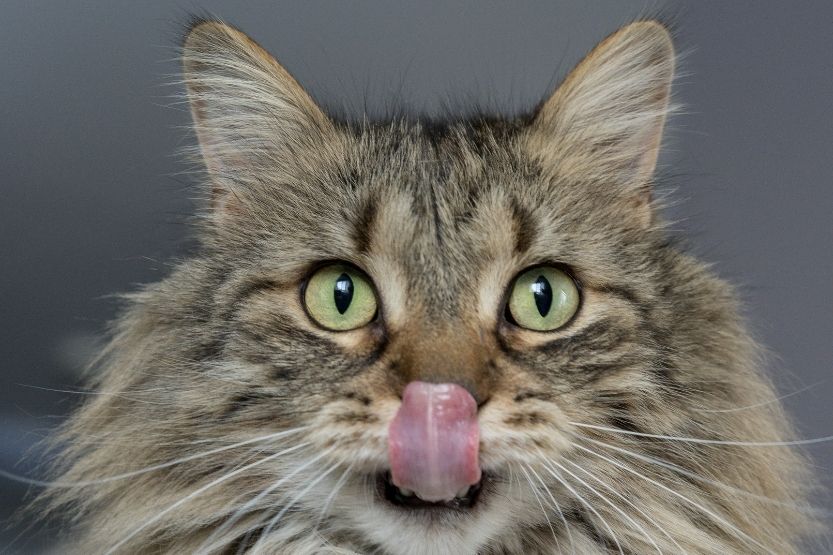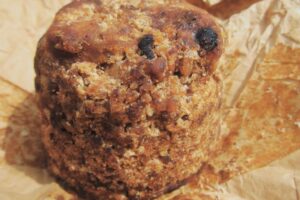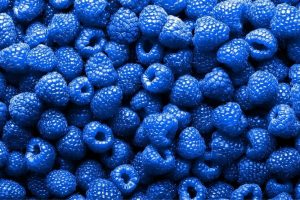While many prepared cat foods are available in the market, pet owners sometimes want to feed their cats organic human food, such as beans. Are beans safe for cats? Can cats eat beans?
Cats can eat beans. However, some cats should not eat beans because they have more sensitive stomachs than others. So, you must know your cat’s eating habits and preferences before giving beans to your pet.
Beans are healthy for most cats due to their nutritional value. They are rich sources of proteins, vitamins B1, B6, B9, A, C, E, and K.
They also contain selenium, copper, zinc, potassium, calcium, manganese, magnesium, iron, and other essential nutrients. Beans also provide the dietary fiber that cats need for good health. Beans would be a perfect substitute for your cat’s meat dishes every once in a while.
Read on to learn more about adding beans to a cat’s diet and how beans affect cats.
Can Cats Eat Beans?

Cats can eat beans. But there are cats with sensitive stomachs that should not eat beans. When these cats eat beans, they will experience digestive issues.
Examples of these issues include bloating or stomachaches. So, test your cat’s response to the beans before feeding them.
There are many bean types that you can choose from. You have to experiment to find out what your cat prefers.
Below are the most common bean types that you can feed to your cat. Each has a flavor of its own that your cat can savor:
- Fava beans
- Red beans
- Lima beans
- Black beans
- Soybeans
- Mung beans
- Kidney beans
- Cannellini beans
- Black-eyed beans
- Great northern beans
- Flageolet beans
- Green beans
- Garbanzo beans (Chickpeas)
Can Cats Eat Green Beans?
Cats can eat green beans. You can safely choose green beans as a source of protein and essential vitamins for your cat. Green beans, carrots, white squash, and asparagus are some of the best vegetable choices for your cat.
The green beans and veggies will help your cat’s digestive system function smoothly. Cats love to feast on meat, but they need these greens for a healthy digestive system.
Can Cats Eat Garbanzo Beans?
Plant experts also classify peas and lentils as beans. However, can cats eat garbanzo beans and lentils too?
You should avoid feeding your cats garbanzo beans as these are low in amino acids and high in starches that cats find hard to digest. You can give it as a treat but avoid giving it as a primary food source for your cat.
Can Cats Eat Black Beans?
If your pet can eat peas, can cats eat black beans as well? Yes, cats can eat both garbanzo beans and black beans if you prepare and cook them properly.
Can Cats Eat Pinto Beans?
What about other bean types? Can cats eat pinto beans? Cats can eat pinto beans as long as they’re freshly cooked. Don’t feed your cats canned beans, as this may cause health problems.
Can Cats Eat Lima Beans?
Can cats eat lima beans? Cats can eat lima beans. But take note that you shouldn’t feed them these beans every day since cats don’t handle carbohydrates well. Their diet should be meat-based.
How to Cook Beans for Your Cat?
You must know how to cook the beans so that your cat can eat the beans safely. It would be best to buy organic beans as they are safer and unaltered:
1. Wash the Beans Thoroughly
Get rid of bacteria on the beans’ surfaces by washing the beans in water at least three times. Do not shed the outer thin surface as you may get rid of some nutrients.
2. Boil Until Cooked
Pour in the right amount of water in an appropriate pot. Boil the beans until tender. Do not add salt, sugar, or spices, as your cat may be allergic to these substances. Herbs can also harm your cat’s digestive system.
3. Serve the Beans Unseasoned
You can give small amounts of unseasoned beans to your cat now and then. Do not force your pet to eat it, though. Allow your cat to get used to it. Eventually, your feline will try to taste the beans.
Another way to feed beans to your cat is to serve them kidney beans. Wash the kidney beans thoroughly, soak them, and then cook them well.
So, can cats eat kidney beans? Yes, your cat can eat kidney beans, provided that they are cooked and served without seasonings.
What Other Cooking Methods for Beans Can You Use for Your Cat?
What about refried beans? Can cats eat refried beans? Pet experts do not recommend giving your cat refried beans due to their high-fat content. So, the best answer is “no.” Although your cat may eat refried beans, know that it is unhealthy.
Some vets do not recommend canned beans as well. Canned beans contain spices, additives, and food dyes that could harm your cat. They may also include food preservatives that are dangerous to cats.
What about baked beans? Can cats eat baked beans? Cants cannot eat baked beans. Baked beans may contain onion and garlic, which can seriously harm cats. Some canned baked beans may also contain salt and sweeteners (xylitol) that may cause pancreatitis and hypoglycemia. [1]
To help you find the best food for your cat, avoid foods toxic to cats, such as the foods included in the list below [2]:
- Alcohol
- Garlic
- Onions
- Chocolate
- Raw eggs
- Raw meat
- Bones
- Raisins
- Grapes
- Dog food
- Caffeinated drinks
- Milk and dairy products
Pros and Cons of Beans Diet for Your Cat

Pros
1. Cheap
Beans are inexpensive compared to other cat foods. Your feline does not need a lot of beans daily. You can feed your cat in small amounts. These small portions have numerous nutrients.
2. Rich in Nutritional Value
Beans contain multivitamins, fiber, protein, essential minerals, and antitoxins. That is why some health experts call it the ‘superfood.’ Beans are healthy for your cat too.
3. Low Calorie
Even though beans are packed with nutritional value, they are low-calorie foods. You do not have to worry about your cat gaining unhealthy weight.
Some researchers found out that kidney beans can lower bad fat (cholesterol) in the human body. [3] It may have the same effect with your cat.
4. Easy to Cook
You only have to boil and simmer until tender, and that’s it. Moreover, you could cook small portions and feed your cat twice or thrice a week. Also, you can serve beans as snacks or in between meals.
Con
May Cause Digestive Problems
Beans may cause bloating or flatulence in your cat. Your cat may pass gas often after eating beans.
Again, can cats eat beans? Cats can eat beans. However, not all cats can eat beans because some cats have more sensitive stomachs than others. Observe your cat and give beans accordingly.
They need beans as a source of the following:
- Fibers,
- Protein, and
- Vitamins.
Although cats thrive on animal protein, they still require the multivitamins and antitoxins that beans provide.
Next, let’s proceed to some tips in properly feeding your cat.
Tips for Properly Feeding Your Cat Beans and Other Food
1. Never Feed Them Raw Beans
Raw beans contain lots of lectins that can be harmful to your cat. Furthermore, there may be bacteria, such as E. coli and S. aureus, which could be thriving on the bean’s surface. These microbes can cause food poisoning and other diseases.
Raw beans could also contain intestinal parasites that can cause parasitic infections in your cat.
2. Keep Food in Cat-proof Containers
Keep your cat from eating prohibited foods by storing all food in cat-proof containers or lockers. Cats can climb shelves and cabinets in search of food.
3. Do Not Feed Your Cat Food Scraps While Eating
Do not feed food scraps to your cat while you are eating. Never allow your cat on the counter or table. This action will give your pet the impression that it is acceptable to eat with you on the table.
Unless you want to share your plate with your cat, you have to avoid this harmful practice. Note that cats can transmit some of their illnesses and parasites to you through their saliva.
4. Feed Your Cat a Healthy Diet
A cat’s healthy diet should include proteins, fibers, and carbohydrates. The protein can come from the following:
- Cooked salmon,
- Beef,
- Tuna,
- Lamb,
- Lean pork, and
- Chicken.
Legumes, including beans, are also good sources of proteins.
You can provide the fiber through your cooked beans or sweet potatoes. The carbohydrates can come from cooked oatmeal, white rice, peas, or barley.
5. Never Feed Raw Meat
Raw meat can contain intestinal parasites, bacteria, and viruses. Examples of parasites in raw meat are tapeworms and roundworms. Bacteria, such as Escherichia coli and Staphylococcus aureus in raw meat can cause food poisoning. Examples of viruses are hepatitis B and C.
This rule also applies to all foods. You should only feed your cat well-cooked food. Your cats can easily acquire parasitic ova or larvae from raw meat.
6. Cats Are Obligate Carnivores
Cats are obligate carnivores, so they prefer meat. They should eat meat to meet their dietary requirements to stay healthy. Only animal meat can provide some of your pet’s nutritional needs. You have to cook the meat well before feeding your cat.
You can include beans now and then to provide fibers and other essential nutrients. Nevertheless, most of the cat’s protein should come from animal protein.
7. Wash Any Raw Food Before Cooking
You have to wash well any raw food before cooking to get rid of chemicals, infectious agents, and dirt. Washing natural foods properly will reduce the risk of ingesting any harmful substances or microbes.
Beans could also develop molds and fungi growth. Hence, you should always soak and wash them before cooking.
8. Not All Cats Like Beans
Do not force your cat to eat beans if your pet ignores the food. You could give beans every time you feed your cat. Allow your cat to eat the beans voluntarily. When your cat cannot eat beans, you can switch to potatoes, broccoli, or other vegetables.
9. Do Not Give Beans to Cats with GIT Problems

Beans may cause flatulence (extra gas) or digestive problems to cats with sensitive gastrointestinal tract systems (GIT). Hence, avoid feeding them beans.
You can suspect digestive problems when your cat displays one or more of these symptoms:
- Constipation or diarrhea
- Stomachache
- Bad breath
- Vomiting
- Weight loss
- Loss of appetite
In this case, go easy on giving your cat beans. You may want to switch to other veggies as your feline’s sources of fiber, multivitamins, and minerals.
10. Serve Small Portions of Beans at the Onset
Feed your cat small portions of beans at the onset and observe any adverse reactions. If your pet displays unusual behavior, such as frequent gas passing, you can reduce the servings.
Reduce the number of servings until your cat gets accustomed to beans. If flatulence persists, you can change the veggies to something easier to digest.
11. You Could Give Beans as a Snack
You can serve beans as a snack. Leave the cooked beans in your cat’s feeding container and allow your pet to taste it or eat any portion. Again, start with small servings. Cats can only eat small amounts of veggies.
12. Visit Your Vet Regularly
Your cat needs fiber too. In case your cat does not want any of the veggies, you could consult your vet for other options. Visiting the vet annually will ensure that your pet stays healthy and well.
Request vaccinations for your cat too. Examples of these vaccines are:
- Rabies
- Herpesvirus
- FVRCP (Feline Viral Rhinotracheitis, Calicivirus, and Panleukopenia)
Ascertain that your pet’s GIT is also functioning well so that you can freely give beans as snacks.
Conclusion – Can Cats Eat Beans?
Definitely, cats can eat beans. However, not all cats can eat beans because there are cats with sensitive digestive systems. You must know your cat’s eating habits and preferences before giving beans to your pet.
If your cat has no GIT problems, you should give beans because these legumes are packed with essential nutrients. Your feline would prefer meat.
However, you have to feed your cat veggies too. You can serve well-cooked beans now and then to ensure that your pet gets enough fibers and vitamins not present in meat.
Again, here’s how to cook beans for your cat?
- Wash the Beans Thoroughly
- Boil Until Cooked
- Serve the Beans Unseasoned
Here’s a list of food that you should avoid giving your cat:
- Alcohol
- Garlic
- Onions
- Chocolate
- Raw eggs
- Raw meat
- Bones
- Raisins
- Grapes
- Dog food
- Caffeinated drinks
- Milk and dairy products

![Baby Brown Recluse Spider: How to Identify, Is It Dangerous? [With Pictures] baby brown recluse](https://howchimp.com/wp-content/uploads/2021/05/baby-brown-recluse-300x200.jpg)
![Tiny Black Bugs in Bathroom [What Are They? How to Get Rid of Them?] tiny black bug in bathroom](https://howchimp.com/wp-content/uploads/2021/05/tiny-black-bug-in-bathrooms-6-300x200.jpeg)



